Graham Reid | | 8 min read
Bryan Ferry: Simple Twist of Fate (from Dylanesque, 2007)
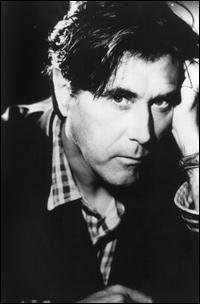
Let's be honest, this is how we think
Bryan Ferry spends his days: he rises just before noon after having
tea, toast, marmalade and the daily papers delivered to his bedroom.
His manservant lays out his crisply
pressed white suit in his dressing room. He'll flick the pages of
Vogue and Vanity Fair to see what his famous friends have been up to,
then later in the day he'll go to a sophisticated club where he has a
Singapore Sling, sits on a high-backed bamboo chair under the ceiling
fan and discusses matters of the day with Somerset Maugham and Noel
Coward.
That sounds about right. So when you
speak to Bryan Ferry -- born in County Durham 58 years ago, and
briefly an art teacher before art-rock seduced him -- you just have to
ask: is it ever just jeans and a T-shirt around the house, mate?
"I'm not a big T-shirt man,"
he says. "I just don't like them. I've always worn a shirt. I do
like tailored clothes but I do try to mix them up and be vaguely
creative.
"But a lot of modern designers do
traditional styles which I like: Dior, Dolce and Gabbana, Tom Ford,
and Ralph Lauren. I like Savile Row, with a twist."
It is not a burden to Ferry to be a
figure of poise and cool detachment in a rock'n'roll culture where a
dishevelled appearance and paparazzi shots of bad behaviour seem
obligatory. It comes naturally, he says with a mild laugh of
bemusement.
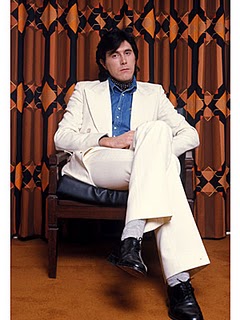 "I'm quite reserved and people
assume that means I'm cool, but of course I am quite emotional
otherwise I wouldn't be a musician. And I've always been interested
in cinema so I like that idea of projection of an image."
"I'm quite reserved and people
assume that means I'm cool, but of course I am quite emotional
otherwise I wouldn't be a musician. And I've always been interested
in cinema so I like that idea of projection of an image."
So the image is the man? Not really. On
the cover of his last solo album, Frantic -- a much overlooked return
to rocking Roxy Music form -- he appears unshaven and smoking.
"Oh, I haven't actually smoked for
12 years but that was a nice old photo so ... "
And of course he rises at noon after
taking breakfast between the silk sheets?
"Actually, I'm in the office here
most days. I've been on the road so much in the past three or four
years so I have to be here to sign the paperwork.
"I try not to get involved too
much in the business side but the longer your career the more stuff
you accumulate. I've got a new manager whom I've only had for a few
weeks, so in the overlapping period I have been quite busy here."
Good Lord, Bryan Ferry as office boy?
Where's the glamour for us, man?
"Well, I've just come back from
China and the Miss World competition. I wasn't appearing, just sang a
song. We're all a bit blase about these things in the West but over
there it's a kind of new thing for them so it was a lovely show. I
didn't see anything of China though, it was on Hainan which, from the
air at least, was a very beautiful island resort."
Ah, this is the Ferry we want:
jet-setting, surrounded by beautiful women in an exotic Asian resort,
singing languidly then leaving sighing breasts of longing behind him.
How Ferry got his image is easy to
trace. At the height of glam-pop in the early 70s, and while hairy
bands like the Allman Brothers stalked the planet, Roxy Music
appeared out of Britain with a kind of alien art-rock image and music
which was ironic, detached and yet glamorous.
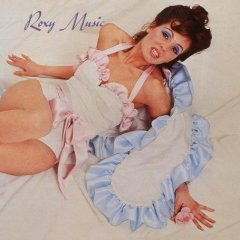 Their album covers featured icy and
overly made-up models. Roxy Music pulled together arty
experimentalism (thanks to keyboardist Brian Eno, who soon had a
falling out with Ferry) and old time rock'n'roll, which was a passion
of Ferry's. Add Andy Mackay's saxophone, Phil Manzanera's guitar
textures, and oceans of pretension and they were made.
Their album covers featured icy and
overly made-up models. Roxy Music pulled together arty
experimentalism (thanks to keyboardist Brian Eno, who soon had a
falling out with Ferry) and old time rock'n'roll, which was a passion
of Ferry's. Add Andy Mackay's saxophone, Phil Manzanera's guitar
textures, and oceans of pretension and they were made.
Within two years, however, the absurdly
padded shoulders were gone, along with Eno, and a more sartorially
constrained image came in. Ferry wore suits and bow-ties and looked
like some lounge lizard cabaret singer, which made their often gritty
rock and acerbic social commentary even more nasty and ironic.
Over time the music changed - Ferry
became more mannered vocally - and the trappings became more elegant.
Ferry became a crooner, stepping out with model Jerry Hall (before
Sir Mick Jagger) and being seen in the front row at catwalks. The
transition from well-dressed rock star to cool clotheshorse was
complete.
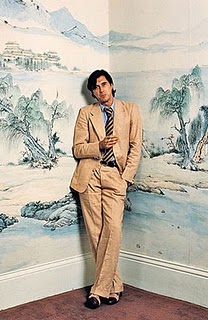 Ferry's solo career - first run in
tandem with Roxy albums - was of varying success, but over the years
through band reformations and the occasional solo hit (notably a
cover of John Lennon's Jealous Guy after the former Beatle's murder),
Ferry alternated albums of originals with those of classic 30s songs
and standards, and became an iconic figure in pop culture.
Ferry's solo career - first run in
tandem with Roxy albums - was of varying success, but over the years
through band reformations and the occasional solo hit (notably a
cover of John Lennon's Jealous Guy after the former Beatle's murder),
Ferry alternated albums of originals with those of classic 30s songs
and standards, and became an iconic figure in pop culture.
It is a position he inhabits today with
varying degrees of comfort. But as he points out, he is a musician
first, and that part of his life has had a considerable kick along in
the past two years.
Yet another Roxy reunion with Mackay
and Manzanera brought the band back into the spotlight, and the
subsequent Frantic album was a remarkable return to form.
He interprets Leadbelly's Goodnight
Irene with Cajun musicians and offers Ja Nun Hons Pris (written by
Richard the Lionheart) with medieval instruments, but mostly the
album digs in with guitar grit, which some have suggested was
prompted by the Roxy reunion.
"I didn't have to be seduced into
doing that reunion. I'd just done a long tour doing the 30s album and
I got into the whole touring thing again. And for the first time,
playing some of those [Roxy] songs live seemed to make sense.
"It was an arena tour on a bigger
stage so it was a shift of gears for me. I had to listen back to the
old songs and that was a painless experience. I'd actually started
recording Frantic before the Roxy tour but when I came back I
toughened up some things.
"Actually some of the songs I had
done eight years before for the Taxi album, but they didn't seem to
mix in right so I put them aside. I don't worry about having songs
hang around. An artist in a studio may have a canvas for 10 years and
it is a work in progress ... you always try various things in the
studio."
On his recent Roxy tours have been his
guitarist Chris Spedding and drummer Paul Thompson, which means they can play a mix of Ferry's solo material and Roxy
"favourites" such as Love is the Drug and Do the Strand.
"I always enjoy doing that,
although you can't do Jealous Guy too many times. But an audience
would be disappointed if you didn't do it."
He reflects on the writers who have
influenced his long life in music. Elvis obviously made a huge
impression, when he was 10 ("the first person I heard who
interested me") but he also had a great love of Lonnie Donegan
and the skiffle sound. Then came the Beatles and Dylan, whose
material he has often turned to. Twice on Frantic.
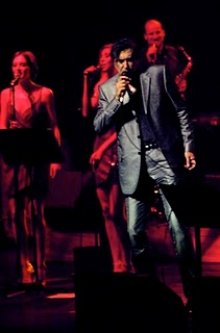
He refers to San Simeon on Frantic as
an example. The name comes from the stately home of American
newspaper baron William Randolph Hearst, the source for Orson Welles'
central character in Citizen Kane, but there is no coherent narrative
or even lyrical centre.
It is simply a place of mysterious dark
doings and brings to mind Roxy Music's In Every Dream Home A
Heartache - which is hardly surprising, Ferry admits some of the
lyrics of San Simeon were left over from Dream Home and now find
their place some 30 years later.
"The place was just a starting
point and hopefully anybody listening would bring something to it.
It's best not to be too specific and I love songs which are a
composite of ideas."
These days he doesn't write much, and
has never been able to write on the road. But the road is better
these days. With improved sound systems and lighting possibilities
which weren't there 30 years ago, he feels he has a better
possibility of reproducing the sounds of the albums.
We talk about Roxy Music's place in the
rock pantheon. Although every musical style that ever existed seems
alive and practised somewhere, you don't hear too many bands like
early Roxy Music.
"Well, Radiohead for a little
while were pointing toward it," he says, as we note in passing
that their guitarist Jonny Greenwood appears on Hiroshima on Frantic.
"But really you're right, not many do. I think because Roxy had
so many colours: there was the synth things from Brian, Andy would
play oboe and various saxophones, and it did sound unusual.
"If you listen now it doesn't
sound so crazy but I guess it is still a little unusual. Rap is
rhythm-based and there's not much tune, and the guitar bands thrash
away. There's not a lot of finesse."
And does this suave and sophisticated
man - who cites Nirvana's Nevermind as one of his favourite songs
alongside Hendrix's Hey Joe and Sister Sledge's We Are Family - have
any advice to those about to embark on a career in music as he did
all those years ago?
"Always follow your own way rather
than look to others. And get very good lawyers - if you can have them
as part of your family that's even better.

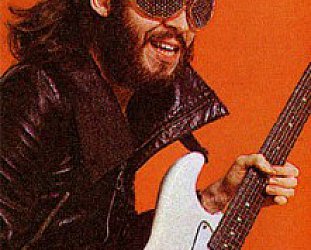
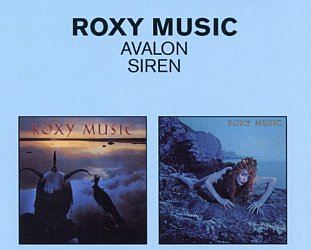
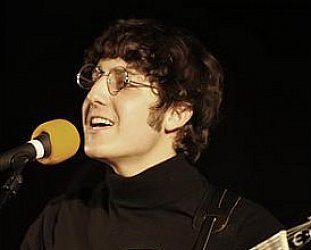
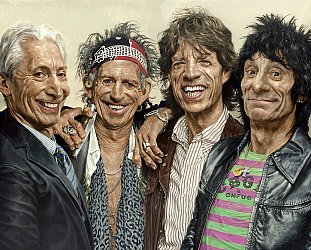
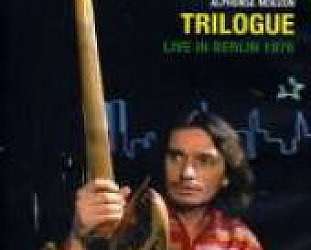

post a comment